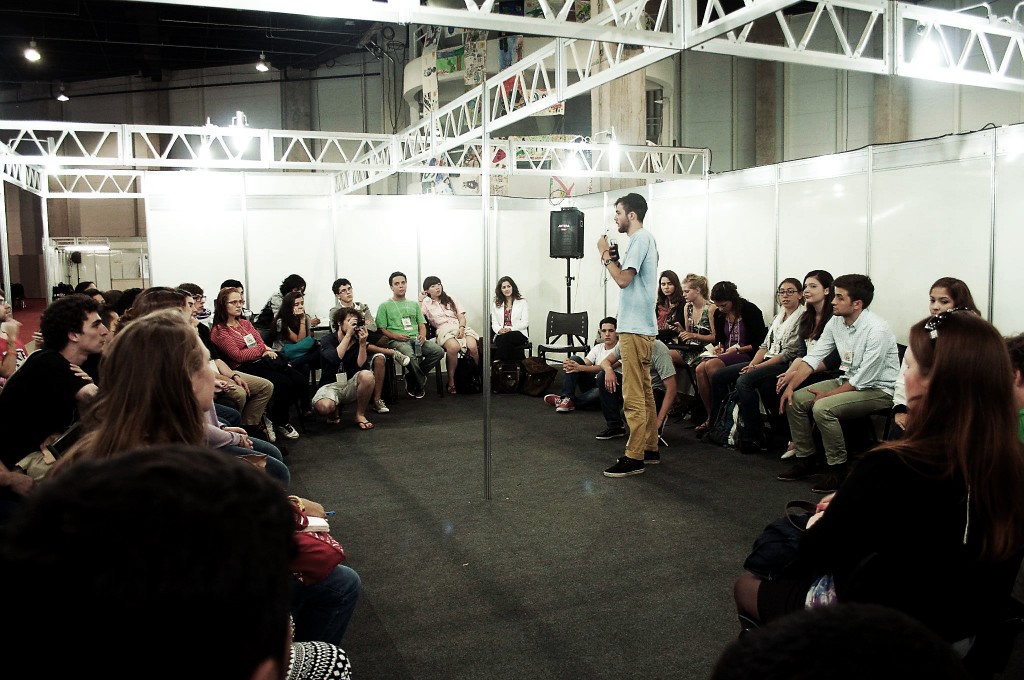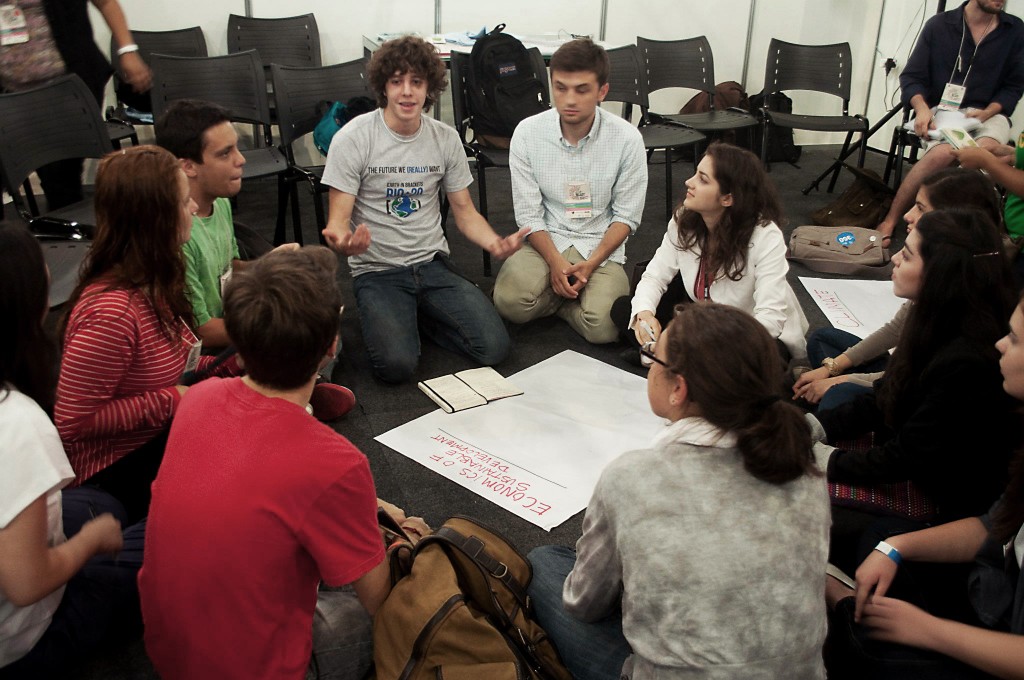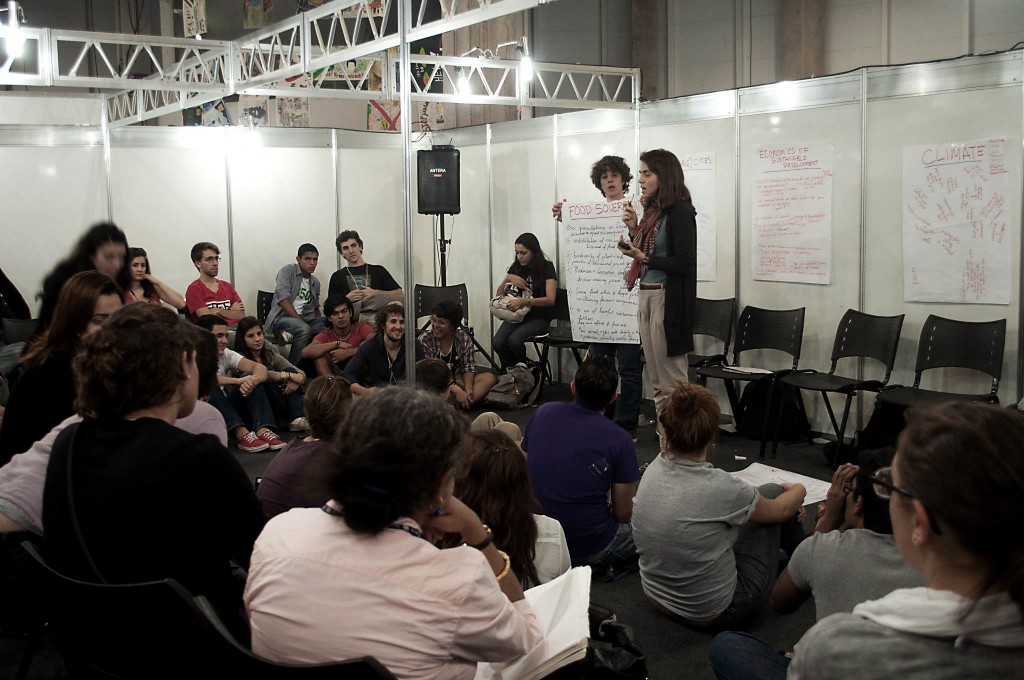Thoughts on the "Green Economy" and Rio+20
by Adrian Fernandez Jauregui
Published on Stakeholder Forum's Outreach magazine
It’s been almost 2 years of mounting excitement around the Rio+20 conference. But what is there to be excited about? How has the world changed in the past 20 years since Rio? Has the lot of the world’s poor been improved? Apparently not. Quite the opposite, in fact. Have global power structures changed? In some ways yes, but in most ways no. There are still the same winners and losers in the great game of international relations. Especially when it comes to the idea of the “Green Economy," where it seems that the Global South will once again get the short end of the stick.
Decades after the lengthy and painful structural adjustment periods of the 70s and 90s, which left deep scars on the industries, agricultural sectors, and societies of the developing world, it is insulting to now see an eerily similar initiative appear in the “Green Economy road-map.” This new initiative is similar in too many ways to the older — unsuccessful and damaging — restructuring initiatives. This new Green Economy initiative would see new trade barriers imposed on the developing world (such as a carbon tariff, or border adjustment tax). It would involve “experts” imposing a “one size fits all” development model, or “road-map.” . It risks establishing new aid conditionalities that require progress solely toward environmental goals. It’s all about changing the rules of the game in order to favor specific (developed) economies, and allocate the burden of transition to developing countries. It restarts the struggle to “catch up” with the developed world, this time (and for now) the new direction is the green economy instead of liberalization of the economy.
The original Rio principles and commitments are being ignored completely as governments work towards a new (questionably titled) document, “The Future We Want.” The excuses are many, but the bottom line is that developed countries want to move away from the agreements and principles established in 1992. Although the Rio principles are supposed to be shaping the document, countries like the US, Canada and Japan have been systematically blocking any mention of the Rio principles, especially the Common but Differentiated Responsibilities and the Polluter Pays principles, which are key strategic safeguards.
It is frustrating to know that the same story is being replayed over and over again. But the worst part is seeing some developing countries follow the same patterns of development based on natural resource predation and unsustainable consumption patterns that not long ago were heavily criticized by overdeveloped countries. It is not easy to restrain humanity’s aspirations of development, and this is the case in Germany, Bolivia, Zimbabwe or elsewhere. But it is certainly tougher to reject the idea of development when poverty, hunger, and inequality are the standard fare of everyday life for the large majority of people. So, it shouldn’t surprise anyone to see more and more developing countries trading green areas of forests for green cash. Especially after the first Earth Summit, when it was made clear that the only way for the South to develop in a sustainable way was by providing them with adequate assistance such as technology transfer, Official Development Assistance and capacity building, breaking any dependency. These necessities were never even close to being met.
Development is needed in most regions of the world to address poverty and under-consumption. But, just as anything else in the natural world, things grow and develop until a certain point, and no more. Unfortunately, there are a number of countries that are living far beyond their means. Over-consumption — a symptom of over-development — remains a contentious topic. In fact, the US rejects the interdependence between sustainable consumption and production patterns and sustainable development. Bolivia and Ecuador disagree fundamentally with this position; for these two countries the concept of “good living” should instead be the guide to achieve sustainable consumption levels. The concept of “good living” means understanding quality of life as much more than purchasing power and consumption levels: It also takes into account humanity's relationship with nature.
Until underlying issues such as inequality, assumption of infinite growth, over-consumption, and lack of agency in the South are seriously addressed, and principles like common but differentiated responsibilities are seriously respected, any outcome from Rio will not be the future we really want.
http://www.stakeholderforum.org/sf/outreach/index.php/prepcom3/108-prep3day3/945-prep3day3item5





